Editor’s Note, May 30: This edition of The Collision has been updated to account for new developments.
As we expected, a verdict came down in Donald Trump’s New York criminal trial a few hours after we published today’s edition of The Collision: He was found guilty on all 34 counts brought against him by Manhattan District Attorney Alvin Bragg, officially making him the first former president to become a convicted felon. The jury reached a verdict late Thursday afternoon, about a day and a half after it began deliberations on Wednesday morning.
A somewhat shellshocked Trump delivered a short statement outside the court room as reporters shouted questions at him about whether he was worried about going to jail. “This was a disgrace, this was a rigged trial by a conflicted judge who was corrupt,” he said. “The real verdict is going to be November 5 by the people.”
“I’m a very innocent man,” he added. “This is long from over.”
Judge Juan Merchan, who has presided over the trial, scheduled Trump’s sentencing for July 11, just four days before the Republican National Convention nominating Trump for president is set to kick off in Milwaukee. His legal team is surely prepared to appeal the verdict, but that process could take months to play out. Most immediately, all eyes are on the polls: Are voters paying attention—and do they care?
We’ll have much more on the political ramifications of today’s news—and a more detailed look at how the next few months will play out—in a bonus edition of The Collision tomorrow.
What a week for the intersection of law and politics! A verdict in former President Donald Trump’s New York criminal trial could come down at any moment, and we’ll get you a bonus edition of The Collision breaking it all down once it does.
For now, though, there are a couple of developments we wanted to catch you up on.
The Docket
- Judge Aileen Cannon on Tuesday temporarily denied a motion from special counsel Jack Smith to institute a limited gag order on Donald Trump that would prevent him from making statements about his classified documents case that could “pose a significant, imminent, and foreseeable danger to law enforcement agents participating in the investigation and prosecution of this case.” Smith’s motion was filed days after Trump and his allies amplified highly misleading claims that the FBI had been authorized to kill the former president during the 2022 raid on Mar-a-Lago. Cannon ruled that the prosecution had not properly notified the defense before filing the motion, though she also ruled against Trump’s lawyers’ counter-motion to strike Smith’s motion from the record. It’s possible Smith could file the motion again.
- The Biden campaign held a press conference outside Trump’s Manhattan trial on Tuesday, with actor Robert De Niro and several former Capitol Police officers—including Michael Fanone and Harry Dunn—making the case against the former president. After Fanone appeared at the press conference to call Trump an “authoritarian,” however, Fanone’s mother was reportedly swatted at her home Tuesday night. “Swatting” refers to the practice of calling emergency services with false claims of impending violence for the purpose of sending police officers to a victim’s home. As The Collision has covered before, a number of people associated with the prosecution of Trump—including Jack Smith and D.C. district court judge Tanya Chutkan—have been swatting victims.
- At the New York Times, Maggie Haberman examines how Trump is “leaning into an outlaw image, surrounding himself with accused criminals and convicts.” Haberman and her co-author Jonah Bromwich write that the former president “used a weeklong break from court to align himself with defendants and convicted criminals charged by the same system with which he is at war.”
Hush Money Trial Miscellany
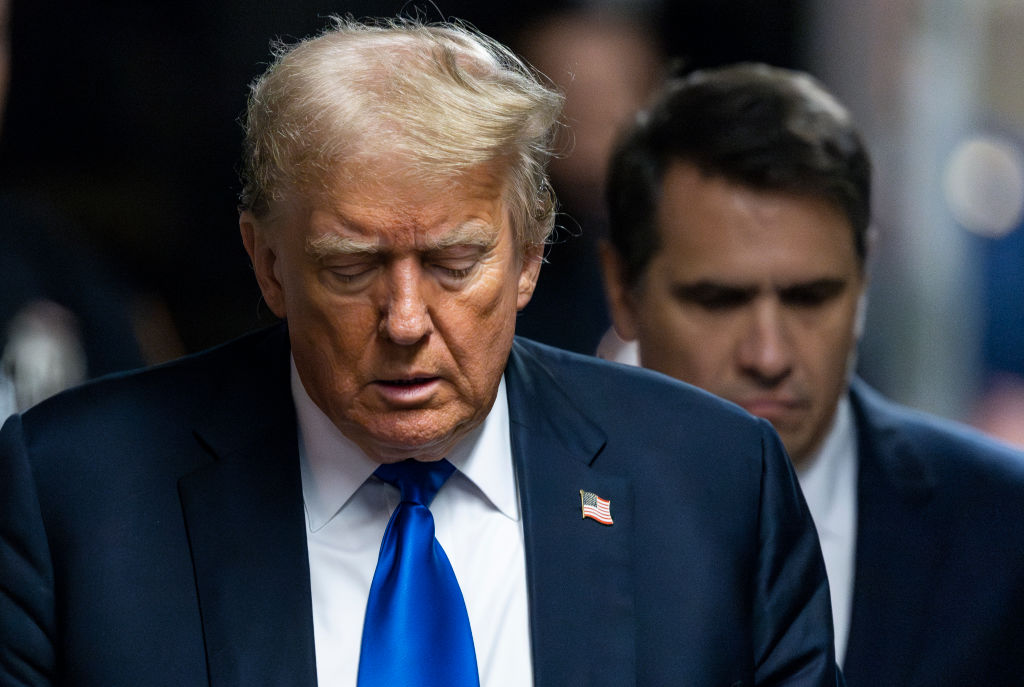
While we await a verdict, let’s dive into a few stories that popped up during what is likely the final week of Donald Trump’s criminal trial in Manhattan.
The Biden Campaign Presser
As prosecutors began their closing arguments in the courtroom Tuesday, the Biden campaign held a campaign event outside the courthouse in Manhattan. Although the campaign was careful not to refer to the trial itself, it nevertheless decided to use the end of the proceedings to make the case for the president’s reelection as Trump continues to lead Biden in the polls. “We’re here primarily because of the threat that Donald Trump poses to the United States of America and to our democracy,” Michael Tyler, the Biden campaign’s communications director, said. “For weeks and for months now, we’ve seen the ramblings of an unhinged, power-hungry, self-centered man.”
A spokeswoman for the Trump campaign criticized the press conference as “pathetic,” longtime Trump aide Stephen Miller argued it was proof that “Biden’s entire campaign strategy is to have his Democrat prosecutors jail his opponent.” Preempting questions about the location of the event, Biden campaign communications director Michael Tyler kicked off his remarks by saying, "We’re not here today because of what’s going on over there, we’re here today because you all are here,” referring to the non-stop media coverage of the trial.
Biden himself did not attend the press conference, but actor Robert De Niro—flanked by former Capitol Police officers Michael Fanone and Harry Dunn—attacked Trump along familiar lines that had nothing to do with the case inside the courthouse. “We’ve forgotten the lessons of history that showed us other clowns who weren’t taken seriously until they became vicious dictators,” De Niro said. “With Trump, we have a second chance and no one is laughing now. This is the time to stop him by voting him out once and for all.”
Fanone and Dunn focused on Trump’s culpability with the January 6, 2021, riot at the Capitol. “I’m just one representative of the hundreds of police officers that were assaulted that day by Donald Trump’s supporters, inspired by his lies, the lies that continue to this day to inspire my fellow Americans to turn against their fellow Americans, to turn against police officers,” Fanone said. Dunn called Trump “the greatest threat to our democracy and the safety of communities across the country today” and castigated the former president for calling officers like him “traitors.”
At the conclusion of the press conference, a crowd of Trump supporters heckled De Niro—“You’re washed up!” “Your movies suck!” “You’re a nobody!”—prompting De Niro to shout “f— you!” right back as he was escorted away.
Sarah’s View
So what was the Biden campaign thinking? They’re frustrated. Nothing is moving the needle in the polls: Biden doesn’t fall on his face at the State of the Union? Trump stays ahead. Economic forecast improves? Trump stays ahead. Trump trial starts? Trump stays ahead. So the campaign has stopped asking what’s the upside (the standard risk-averse position for an incumbent candidate) and started asking what’s the downside (the traditional ‘“let X be X,” YOLO position of the guy who’s behind). That’s a bold strategy, Cotton. Let’s see if it pays off for him.
Unanimous Verdicts
On Wednesday, as members of the jury were receiving their instructions from Judge Juan Merchan before deliberating, Fox News correspondent John Roberts tweeted the following:
This led many influential conservative voices online—including multiple Republican members of Congress and even Trump himself—to argue that the judge had done away with the requirement for a unanimous jury verdict in a criminal case. “This is exactly the kind of sham trial used against political opponents of the regime in the old Soviet Union,” Sen. Marco Rubio tweeted.
But Roberts’ claim that the jury does “not need unanimity to convict” is incredibly misleading.
As we’ve written in this newsletter many times in recent months, Trump faces felony charges for falsifying business records. For him to be convicted, the jury must unanimously agree that the business records were false, that Trump caused them to be falsely recorded, and that he did that to conceal another crime.
That last point is what’s causing all the confusion. For Trump to be convicted, the jury just needs unanimous agreement that Trump was trying to conceal the true nature of the payments from potential criminal investigators. The prosecution doesn’t need to prove that Trump actually committed another crime—or even what that other crime could have been.
Imagine, for example, Trump saying to himself, “Paying this hush money to Stormy Daniels feels shady, so let’s make sure we paper over it. That way, if the FBI comes snooping around, it’ll all look kosher.” In that scenario, Trump himself wouldn’t have necessarily thought about what specific crime he was committing, but he was intentionally falsifying the business records to cover up any crime that he may have been committing. Under the New York statute regarding falsifying business records in the first degree, that would be enough.
Making the jury unanimously agree on what crime Trump was attempting to cover up would be nonsensical—because even Trump himself didn’t know what crime he was attempting to cover up.
It’d be odd if the law punished someone only if they themselves knew what specific crimes they had committed. A mob boss who tells his secretary to write “business lunch” instead of “cement and buckets” in the books isn’t innocent just because he doesn’t know whether he’s covering up first-degree murder or manslaughter.
But the biggest problem for the prosecution is still tying Trump to the business records themselves. For Bragg et al. to secure a conviction, the jury must unanimously agree that Trump made the false business records himself or caused them to be made false by directing someone else to do it. While there is some evidence from testimony that Trump was aware of how the payments to Michael Cohen were being recorded, it’s plausible the jury could have enough reasonable doubt about whether he was fully read in on or directed the false bookkeeping.
Questions From the Jury
Shortly after members of the jury began deliberations on Wednesday, they sent two notes to Judge Merchan. In the first, they asked to review various sections of testimony from David Pecker and Michael Cohen. In the second, they asked to hear the judge’s instructions again.
Many commentators will try to interpret these breadcrumbs and tell you what direction the jury seems to be leaning, but in reality, jury questions aren’t very helpful for divining the final outcome. In this case, it’s unclear whether the entire jury was confused about what the witness said or whether the majority of jurors were trying to convince a holdout who they think can be convinced by rereading it—or vice versa.
What it does mean is that the jury is taking their jobs seriously and paying attention to the evidence. The verdict is ultimately in their hands.
Verbatim
“We the jury request to rehear the judge’s instructions.”
—The second note from the jury during its first day of deliberations, May 29, 2024
Troubling Optics Ahead of Hunter Biden’s Criminal Trial
Hunter Biden’s first criminal trial is set to begin on Monday in a federal court in Delaware. The son of President Joe Biden has been charged with lying about his drug use on a federal form used to purchase a handgun, as well as for his possession of that handgun while using drugs. It’s one of two federal cases facing Hunter, the other involving nine tax-related charges, which are being prosecuted in California.
Both of these prosecutions emerged from the investigation headed up by the Justice Department’s David Weiss, who began leading the probe during the Trump administration but was elevated to special counsel by Attorney General Merrick Garland in August 2023. As with the several other special counsels floating around in recent years, Weiss’ appointment theoretically helps insulate his investigation and prosecution from conflicts of interest and, just as importantly, the appearance of conflicts of interest. Current federal regulations provide the grounds for the appointment of a special counsel when any sort of conflict with the Justice Department arises; the subject of an investigation being the president’s son certainly fits the bill.
It raised some eyebrows, then, when Hunter Biden and Garland were both listed as invitees to last week’s state dinner at the White House for the visiting president of Kenya. The two men were also at the White House last week for a Jewish heritage celebration in the Rose Garden. Garland and the younger Biden also attended a state dinner for the Indian prime minister last summer, just days after Hunter had entered a plea agreement with the DOJ related to his tax and gun charges—though that deal would fall apart two months later.
Neither a DOJ spokesman nor an attorney for Hunter responded when asked by The Collision whether Garland and Hunter Biden spoke or interacted with one another at last week’s dinner.
The state dinner was not the only moment in recent days raising questions about proper conduct ahead of Hunter’s trial. On Sunday, President Biden—who reportedly worries about Hunter going to jail “every single day, from the moment he wakes up to the moment he goes to sleep”—paid a visit to the home of Hallie Biden, the wife of his late son Beau. Thursday is the ninth anniversary of Beau’s death, and the president remains close with both Beau’s widow and their two children, his grandchildren. At the White House on Tuesday, press secretary Karine Jean-Pierre told reporters the president visited his daughter-in-law in anticipation of that anniversary.
“She is family,” Jean-Pierre said.
But Hallie is also a key witness for the prosecution in Hunter’s trial, stemming from her romantic relationship with Hunter after Beau’s death. When asked on Tuesday if Biden discussed Hallie’s upcoming testimony with her on Sunday, Jean-Pierre replied, “This was not about that.”
On Wednesday, White House deputy press secretary Andrew Bates responded to a follow-up question from The Collision about whether Biden and Hallie discussed the upcoming trial or her testimony during their visit.
“No,” Bates emailed in response. “He visited her because of the approaching 9th anniversary of Beau’s passing.”
But Republicans are jumping at the chance to accuse the president of inappropriate behavior. “We’re going to talk about the rather astonishing fact that right before the Hunter Biden trial, Joe Biden decided a little witness tampering was a good way to start that trial,” said Sen. Ted Cruz on his podcast Wednesday. The Texas Republican went on to say that he finds the explanation that Biden visited Hallie in light of the anniversary of Beau’s death “highly dubious.”
Cruz’s speculation exemplifies how the optics of visiting a key witness in his son’s trial can be damaging for the president—especially given the accusations that Trump engages frequently in various forms of witness tampering.
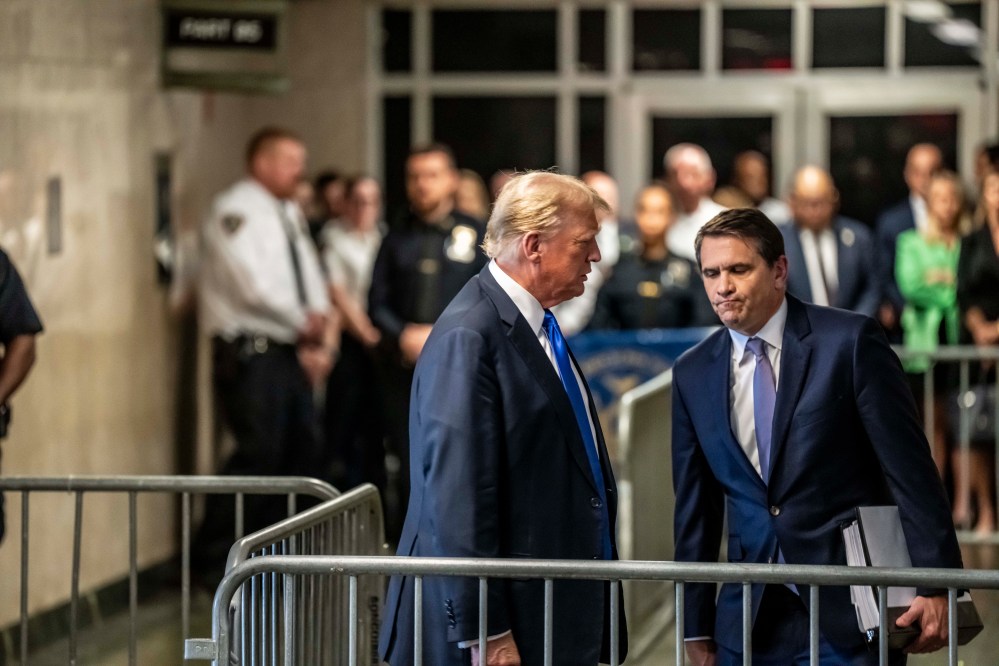


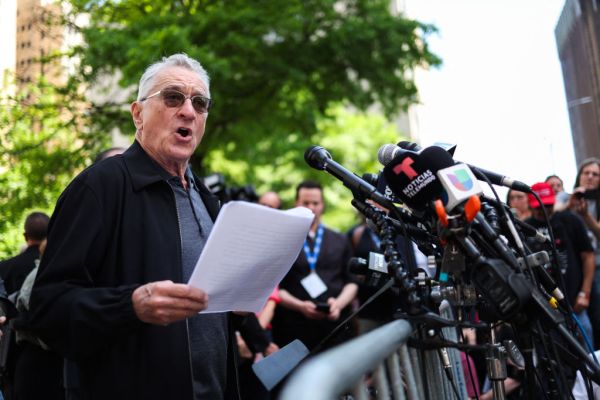
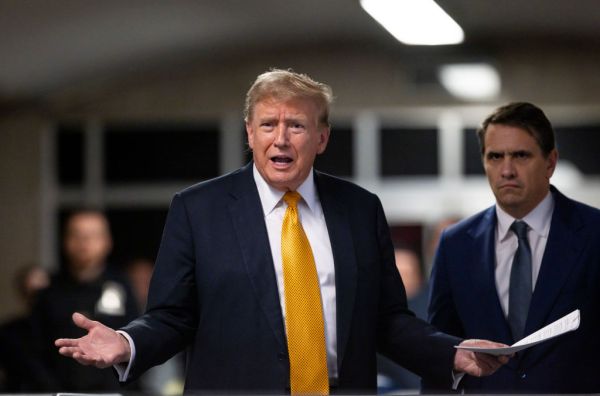
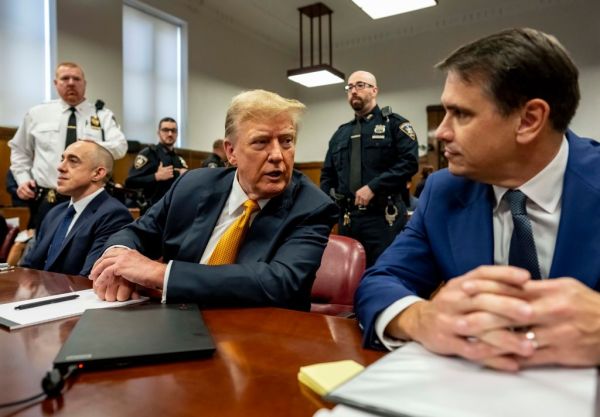

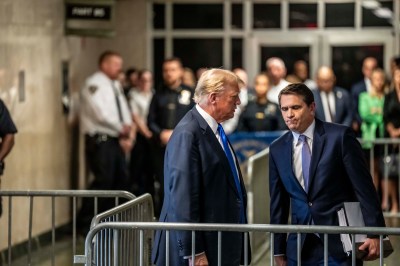
Please note that we at The Dispatch hold ourselves, our work, and our commenters to a higher standard than other places on the internet. We welcome comments that foster genuine debate or discussion—including comments critical of us or our work—but responses that include ad hominem attacks on fellow Dispatch members or are intended to stoke fear and anger may be moderated.
With your membership, you only have the ability to comment on The Morning Dispatch articles. Consider upgrading to join the conversation everywhere.